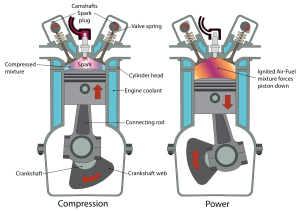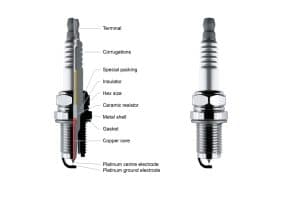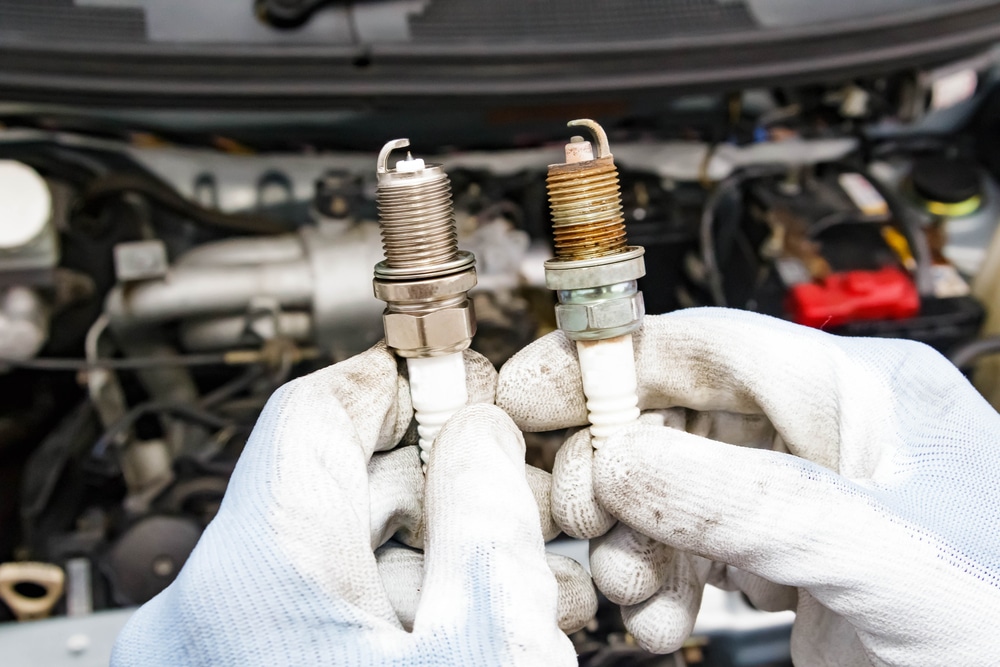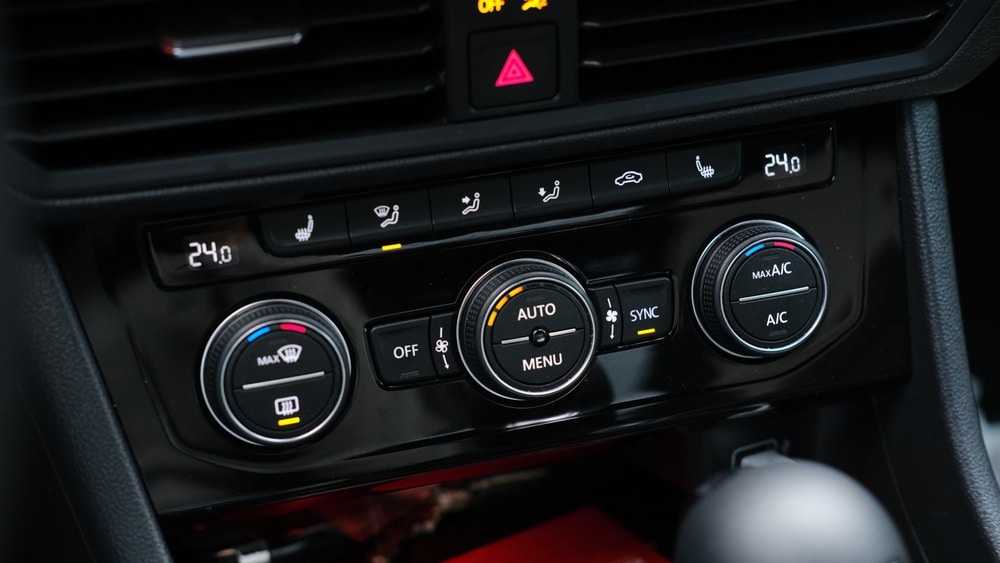Spark Plugs
Your car just died. On the A27 near Eastbourne during a downpour. The repair bill? Eye-watering.
The culprit? A spark plug you ignored for too long.
These tiny components, about the size of your thumb, are the difference between an engine that hums and one that leaves you stranded. They create the literal spark that keeps everything running.
When was the last time you even thought about yours?
Read on to discover why these tiny components matter more than most drivers in East Sussex think.
What Does a Spark Plug Do? Function & Placement Explained
Your engine contains numerous parts that must work together in perfect harmony. Central to this operation is the spark plug – a seemingly simple device that creates thousands of vital sparks every minute to continuously ignite the air/fuel mixture in your engine’s combustion chamber.
Despite being relatively small, spark plugs are essential for your petrol engine’s operation. They are located in the cylinder head of your engine, screwed into the top of each cylinder. In a four-cylinder engine, there are four spark plugs; in a six-cylinder engine, there will be six, and so on. (Though there are exceptions – some modern engines use dual-spark technology with two spark plugs per cylinder.)
Think of spark plugs like the spark igniter on a gas hob. Every time you turn on the gas burner, the igniter creates a small spark to ignite the gas. Spark plugs work the same way in your engine, except that each one must fire perfectly thousands of times per minute. If these sparks don’t happen at exactly the right moment, your fuel/air mix won’t ignite, your pistons won’t move, and your engine simply won’t work.

Which Spark Plug is Right for Your Vehicle?
You can’t just stick any spark plug in your engine and expect it to work properly. Your car was designed to work with a specific type, and using the wrong one can cause real problems. Here are some of the differences:
- Electrode Materials: Spark plugs come with various electrode materials, including copper, platinum, and iridium. Each material varies in performance, durability, and cost, with iridium lasting the longest and copper wearing out the fastest.
- Design Variations: Spark plugs vary in design, including differences in thread size, reach (how far the plug extends into the combustion chamber), and electrode configuration. These design elements are precisely matched to your specific engine to ensure proper combustion and heat dissipation.
- Heat Range: Perhaps the most critical yet least understood aspect of spark plugs is their heat range. This is simply how quickly a spark plug can transfer heat away from its tip. Spark plugs have different heat ratings – some retain heat longer, while others dissipate it faster. Using the wrong one for your car can lead to anything from poor performance to severe engine and catalytic converter damage. That’s why it’s essential to stick to the manufacturer’s recommendations.
Getting the correct spark plugs is only half the battle. How they’re fitted matters just as much. Get it wrong, and you’ll face engine troubles, diminished performance, and a repair bill that might shock you.
Vehicle manufacturers specify the exact type of spark plug your engine requires and how it should be installed based on extensive testing. At South Coast Garage, we only fit manufacturer-specified, high-quality (OEM) parts.
(OEM stands for Original Equipment Manufacturer. When it comes to vehicle parts, this means the parts are made by the same company that produced the original parts for the vehicle manufacturer)
Not sure which type of spark plug your vehicle needs? Ring us for expert guidance on 01323 734473!

What Affects Your Spark Plugs’ Performance? Common Issues
Over time, spark plugs can wear out or lose effectiveness for a variety of reasons:
- Driving Habits: Frequent short trips and stop-start driving can accelerate spark plug wear. If your engine doesn’t get up to optimal operating temperature, it will run rich, which can lead to carbon buildup on the spark plugs. Over time, this can make them less effective, causing misfires, rough idling and a drop in fuel economy. Whenever possible, combining short trips into longer journeys helps maintain proper combustion and prolongs spark plug life.
- Fuel Type & Additives: The fuel you put in your car has a direct impact on your spark plugs. Even though UK fuel standards are high, some lower-quality fuels have fewer cleaning additives, which can lead to carbon buildup over time. If you drive a high-performance car, using the right high-octane fuel can help keep the combustion chamber cleaner and your spark plugs working at their best. Using a high-quality fuel with effective additives can help minimise deposits and extend spark plug life.
- Engine Conditions: Oil leaks, incorrect air/fuel mixture, or cooling system issues don’t just affect your engine – they compromise your spark plugs, too. Keep your engine properly maintained, and your spark plugs will serve you longer.
- Heat Range: Spark plugs need to run at just the right temperature, not too hot or cold. If they run too cool, carbon can build up. If they run too hot, the fuel might ignite before the spark occurs, damaging your engine. Your car’s manufacturer has worked out exactly which type works best for your specific engine, so that’s why, at South Coast Garage, we always stick with what’s recommended.
Signs Your Spark Plugs Might Need Replacing
Spark plugs may be small, but when they start to fail, they can cause noticeable problems for your vehicle. Here’s what to watch for:
- Engine Misfires & Performance Issues: Worn spark plugs can lead to misfires, affecting how smoothly your car runs. You might notice a loss of power when accelerating, or the engine may feel hesitant or jerky, particularly under load. ‘Rough idling’ is another common sign. Since ineffective spark plugs don’t ignite the fuel/air mix properly, you could also see a drop in fuel economy. If left unchecked, frequent misfires can damage the catalytic converter, leading to costly repairs.
- Check Engine Light: Modern engine management systems constantly monitor for misfires. When spark plugs fail to ignite the fuel-air mix properly, your vehicle may illuminate the check engine warning light on your dashboard.
- Hard Starting: When your engine takes longer than usual to start, especially in cold weather, worn spark plugs may be struggling to create the spark needed. This warning sign often worsens over time until your car fails to start.
But here’s the thing… these symptoms can mimic other underlying issues, making spark plug problems tricky to diagnose. If you notice any of these warning signs, don’t risk a breakdown; ring South Coast Garage on 01323 734473 for expert advice.
How Are Spark Plugs Replaced?
Replacing spark plugs requires proper tools and technical knowledge to ensure the job is done correctly.
Getting to your spark plugs usually means removing the engine cover to reach them. Once exposed, we carefully remove each old plug with a spark plug socket tool.
Before installing new plugs, we’ll check that they match the manufacturer’s specifications. We also carefully clean the surrounding area to ensure no dirt enters the cylinder. When installing, we always thread the plugs in by hand, then tighten them to the exact torque your manufacturer recommends. Finally, we put everything back together and run the engine to ensure everything performs optimally.
Complications can arise if not done correctly:
- Seized plugs can break during removal, which then requires specialised extraction
- Cross-threading during installation can cause expensive cylinder head damage
- Improper torque can lead to compression leaks or damaged plug threads
- Incorrect plug selection will cause performance issues or potential engine and catalytic converter damage
South Coast Garage technicians bring extensive model-specific experience to every spark plug replacement.
We exclusively use manufacturer-approved components and regularly calibrate our torque wrenches to ensure precise installation. This approach guarantees your vehicle leaves our Eastbourne garage running in peak condition to tackle East Sussex roads with confidence.
Don’t Wait Until They Fail
Look, we get it. Nobody wants to spend money replacing parts that seem to be working fine. But with spark plugs, waiting too long is asking for trouble. You might save a few pounds now, but you’ll pay for it later – typically at the worst possible moment on busy East Sussex roads.
When Should You Replace Your Spark Plugs?
How often you need to replace your spark plugs depends on the type:
- Copper plugs wear out fastest – they’re cheaper up front, but you’ll be replacing them sooner
- Platinum plugs last longer than copper and are more expensive
- Iridium plugs cost the most but last the longest
While these differences exist, you don’t get to pick! Your car’s engine is designed to work with a specific type, and using the wrong one can cause performance issues and engine damage.
Following manufacturer-recommended replacement schedules isn’t merely suggested maintenance – it’s essential protection against significant repair bills. At South Coast Garage, we strictly adhere to manufacturers’ guidelines for optimal results. The risk simply isn’t worth taking!
Spark Plugs: Common Myths
Throughout our years serving Eastbourne, Brighton and Lewes motorists, our specialists at South Coast Garage have encountered numerous misconceptions about spark plugs. Here are some of the most common:
“Spark plugs are all the same.”
Not true! Spark plugs come in various types (copper, platinum, iridium), with different heat ranges and electrode designs specifically engineered for your engine. Using the wrong kind can lead to poor performance, reduced fuel economy, or even engine damage. The manufacturer specifies the exact plug type for a reason – it’s been carefully matched to your engine’s compression ratio, operating temperature, and combustion chamber design.
“Spark plugs last forever.”
This common misconception causes many drivers to neglect spark plug maintenance. Modern spark plugs are certainly more durable than previous generations, but they still deteriorate with use. The constant electrical sparking, extreme heat, and combustion byproducts wear down the electrodes over time. Even high-quality iridium spark plugs will eventually degrade. Following your manufacturer’s recommended replacement intervals is essential for maintaining engine performance and reliability.
“Spark plugs only affect starting the engine.”
Some drivers think spark plugs only matter when starting the engine, but they’re actually working continuously. While they do play a role in getting the car going, they also fire thousands of times per minute to keep the engine running smoothly and efficiently.
“If one spark plug is bad, only that one needs replacing.”
This penny-wise, pound-foolish approach will lead to repeated garage visits and unnecessary expense. Spark plugs age at approximately the same rate, so when one fails, the others are likely close behind. That’s exactly why car manufacturers tell you to replace them all at once in your service schedule – not one at a time. Save time and money by replacing the whole set when maintenance is due.
Final Advice: Don’t Guess, Check!
Like many aspects of vehicle maintenance, caring for your spark plugs requires a proactive rather than reactive approach. Most drivers only learn about these crucial components after they’ve failed, when the damage has already occurred and they’re stranded alongside a busy road in East Sussex.
We firmly believe prevention is always preferable to repair. Our approach at South Coast Garage has earned us a {{average-rating}} star Google rating from {{review-count}} satisfied customers.
By choosing us, you’ll benefit from:
- Our comprehensive 12-month parts and labour guarantee
- Outstanding value and transparent pricing
- Specialist tools and highly skilled technicians for precise spark plug inspection and replacement
- A commitment to using only genuine or high-quality OEM parts
With our expert team, driving safely around Eastbourne, Brighton and beyond isn’t left to chance.
Ring us on 01323 734473 with any questions about your vehicle. Our friendly specialists are here to help keep you safely on the road.



